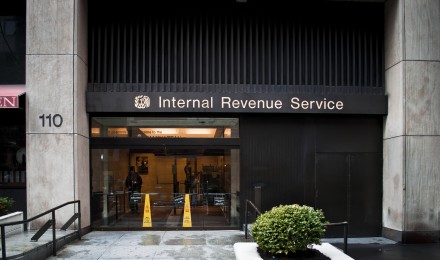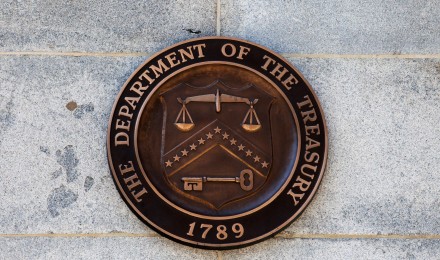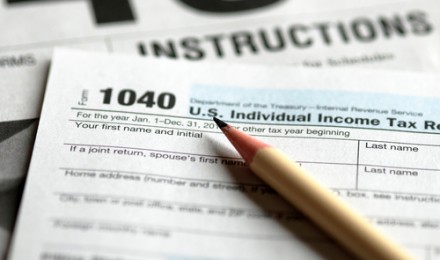Flip to CNN, MSNBC or any other news source and you’re immediately hit with talk about going over the fiscal cliff and the possibility of higher income taxes. This situation is on the minds of practically every taxpayer in the United States. And if the Democratic and Republican parties cannot reach an agreement by December 31, 2012, we’ll wave goodbye to the Bush tax cuts which have given households a tax break since 2001.
The expiration of the Bush tax cuts will trigger a tax increase that averages about $3,500 per household. As taxes increase, it’s only reasonable to anticipate a drop in consumer spending, which can inevitably push the nation into another recession. Understandably, some people don’t want to think the worse or panic until an official deal has been reached. But while nervousness does nothing but compound fears, it’s important to understand exactly what the expiration of the Bush tax cuts means for the average person.
The Bush tax cuts took effect in 2001 and 2003, and were initially set to expire at the end of 2010. President Obama extended the tax cuts, and as we approach another deadline, the inability to reach an agreement may result in the following tax increases:
- Practically every American will see an increase in the amount of income taxes paid to the federal government. Individuals currently paying an income tax rate of 10 or 15 percent may see their tax rate jump to 15 or 25 percent, respectively. And if you’re currently paying 33 or 35 percent in income taxes, your tax rate may jump to 36 or 39.6 percent.
- The withholding rate on payroll taxes will increase on January 1, 2013, thus raising the rate from 4.2 percent to 6.2 percent.
- Currently, estate taxes sits at 35 percent and only applies to inheritances greater than $5 million. With the expiration of the Bush tax cuts, estate taxes increase to 55 percent on inheritances worth more than $1 million.
- Americans who pay taxes on dividends currently pay a tax rate of 15 percent. As of January 1, 2013, this tax rate will more than double to a rate of 39.6 percent.
- Higher taxes on capital gains will mean an increase from 5 percent and 15 percent to 10 percent and 20 percent starting on January 1, 2013 (depending on the taxpayer’s income).
- As of 2012, taxpayers with children receive a child tax credit of $1,000 per child. If the Bush tax cuts expire, this tax credit will drop to $500 per child.
The expiration of the Bush tax cuts – even if only for the wealthiest Americans – could mean billions in taxes and increase revenue for the U.S government. But at what cost? According to some economists, the expiration of tax cuts can trigger a reduction in consumer spending by as much as $200 billion in 2013 – the perfect recipe for a recession.
Both parties understand what’s at stake. And while time is quickly running out – with less than two weeks left before we go over the fiscal cliff, many anxiously wait and maintain a measure of hope that both parties will reach an agreement that best benefits the American people.
Flip to CNN, MSNBC or any other news source and you’re immediately hit with talk about going over the fiscal cliff and the possibility of higher income taxes. This situation is on the minds of practically every taxpayer in the United States. And if the Democratic and Republican parties cannot reach an agreement by December 31, 2012, we’ll wave goodbye to the Bush tax cuts which have given households a tax break since 2001.
The expiration of the Bush tax cuts will trigger a tax increase that averages about $3,500 per household. As taxes increase, it’s only reasonable to anticipate a drop in consumer spending, which can inevitably push the nation into another recession. Understandably, some people don’t want to think the worse or panic until an official deal has been reached. But while nervousness does nothing but compound fears, it’s important to understand exactly what the expiration of the Bush tax cuts means for the average person.
The Bush tax cuts took effect in 2001 and 2003, and were initially set to expire at the end of 2010. President Obama extended the tax cuts, and as we approach another deadline, the inability to reach an agreement may result in the following tax increases:
- Practically every American will see an increase in the amount of income taxes paid to the federal government. Individuals currently paying an income tax rate of 10 or 15 percent may see their tax rate jump to 15 or 25 percent, respectively. And if you’re currently paying 33 or 35 percent in income taxes, your tax rate may jump to 36 or 39.6 percent.
- The withholding rate on payroll taxes will increase on January 1, 2013, thus raising the rate from 4.2 percent to 6.2 percent.
- Currently, estate taxes sits at 35 percent and only applies to inheritances greater than $5 million. With the expiration of the Bush tax cuts, estate taxes increase to 55 percent on inheritances worth more than $1 million.
- Americans who pay taxes on dividends currently pay a tax rate of 15 percent. As of January 1, 2013, this tax rate will more than double to a rate of 39.6 percent.
- Higher taxes on capital gains will mean an increase from 5 percent and 15 percent to 10 percent and 20 percent starting on January 1, 2013 (depending on the taxpayer’s income).
- As of 2012, taxpayers with children receive a child tax credit of $1,000 per child. If the Bush tax cuts expire, this tax credit will drop to $500 per child.
The expiration of the Bush tax cuts – even if only for the wealthiest Americans – could mean billions in taxes and increase revenue for the U.S government. But at what cost? According to some economists, the expiration of tax cuts can trigger a reduction in consumer spending by as much as $200 billion in 2013 – the perfect recipe for a recession.
Both parties understand what’s at stake. And while time is quickly running out – with less than two weeks left before we go over the fiscal cliff, many anxiously wait and maintain a measure of hope that both parties will reach an agreement that best benefits the American people.







